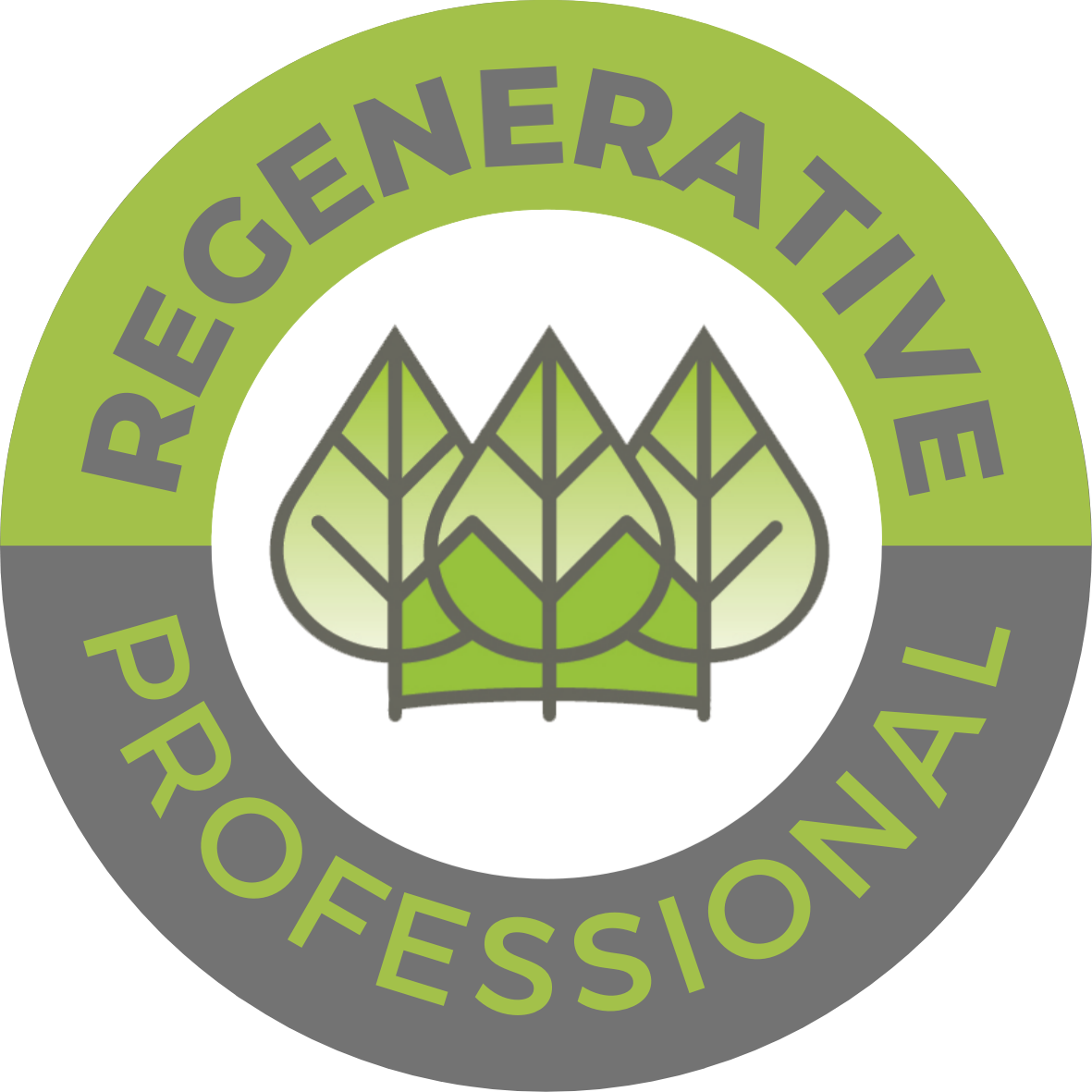
Green Built Alliance’s Regenerative Professional Accreditation program provides the education and framework for a deep and evolving competency in advanced green-building best practices.
The RPA accreditation is available to industry professionals who complete a series of designated courses focused around regenerative building practices within the nonprofit’s growing catalog of continuing-education offerings.
Through this accreditation program, individuals can complete their annual continuing-education requirements, while also attaining a designation that helps distinguish them to clients as a professional who is committed to continually advancing their knowledge and skill set along with the evolving field of green building.
Our intention is that this class series and accreditation will increase the number of building professionals engaged in regenerative building as well as boost participation in our Green Built Home’s Regenerative Certification for new residential construction.
Regenerative Professional Accreditation Curriculum Overview
Required Courses
Accreditation will be awarded after individuals complete eight hours of curriculum – like the two-hour class listed below. These classes will change from year to year, as listed on our Continuing Education page that is published annually, and we will note which classes are for the Regenerative Professional Accreditation.
- DOE Net-Zero Energy Ready Homes and Beyond
View our past/current Class Listings or sign up below to get notified when we publish them.
Additional Electives for Ongoing Education
Individuals remain current by completing at least one two-hour elective annually in each subsequent year following their initial accreditation. Below are also examples of classes that we offer for this elective.
- Edible and native landscaping
- Radon-resistant construction
- Site design
- Reducing construction waste
- Biophilic design (green roofs, outdoor living areas, indoor living walls, natural lighting, etc.)
- Green materials (low embodied energy, recycled content, natural, salvaged, etc.)
- Energy-efficient wall systems
- New and improved HVAC and ventilation strategies
- Home automation and energy monitoring strategies
- Passive solar design
- Electric vehicle charging
- Universal design
- Resilient design (firewise community development, bear prevention strategies, etc.)

